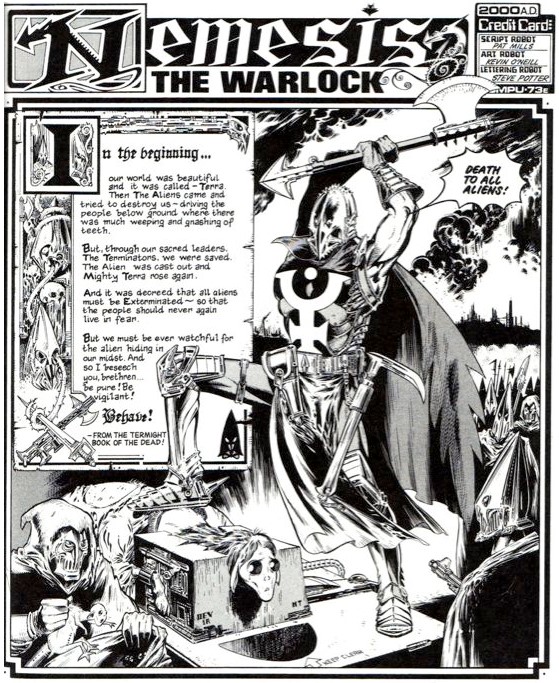Another thing I want to add to this thread, (which is a bit of tangent, so I apologise). I don’t believe in the idea of “No D&D = No Warhammer” (which was mentioned a lot on the early pages). And I wanted to explain why.
Understandably, lots of people see a simple progression of D&D being created, then Games Workshop getting the license, the Games Workshop founding Citadel Miniatures, then creating Warhammer, then creating Warhammer 40k. But this is an over simplification and misses out a lot of important things that come before and at the same time.
So in my opinion, while it would not be called Games Workshop, and it wouldn’t have been founded by Ian Livingstone and Steve Jackson, there would definitely be a company coming out of Nottingham in the 1970s, and it would have created Warhammer. With or without D&D.
Here’s why I think that:
The most important person here is Bryan Ansell. Before Games Workshop founded Citadel Miniatures with Bryan Ansell. Bryan Ansell was a miniatures sculptor who worked for Conquest Miniatures and then founded Asgard Miniatures. Now it’s difficult to find information on Conquest Miniatures (long before I was born), but they had at least 2 lines sculpted by him, one a fantasy range called “Age of Joman”, and one a range called “Gunfighters” (
Link).
I’m going to presume Gunfighters is a western range of miniatures, (unfortunately I can't track down any images), because I know Bryan Ansell was a big fan of the game:
The Old West Skirmish Wargames: Wargaming Western Gunfights, released 1971. And it is this game that is really the genesis of Warhammer 40K.
Now Bryan Ansell wasn’t just a miniature sculptor. He was also a games designer and wrote 2 sci-fi sets of rules,
Laserburn and
Imperial Commander. These are seen as the early influences of 40k, and if you read them you'll find many shared tropes, but they in turn are influenced by the Old West game mentioned above, (in terms of structure and scope).
When Bryan Ansell became MD of Games Workshop in the early 1980s it was his decision to focus on the Warhammer brands and relocate the company to Nottingham where the miniatures were being produced. I think all it takes for someone who is both a games designer and owns a miniatures business to put two and two together and decide that making games that require lots of miniatures is more profitable than making games that require 1 miniature. And Byran Ansell would still be in that position with Asgard Miniatures if he hadn't formed Citadel miniatures with Games Workshop.
So even without Games Workshop securing the rights to sell D&D, you still get all of those creatives in Nottingham in the 1970s and 1980s working together. You still get Asgard Miniatures and that means you still have Bryan Ansell, Rick Priestly and Jes Goodwin, and no doubt, John Blanche too.
As mentioned above, Warhammer 40,000 has it’s roots in Laserburn - it’s also more 2000 AD (Nemesis the Warlock, and Judge Dredd) and Dune than it is D&D. So while it might not have any “Orks” or “Eldar”, I think it still gets created pretty much as we know today. And if the Sci-if version gets created, I think so does the fantasy one.
So there is perhaps an interesting switch there. I think with no D&D, you might see Warhammer 40,000 come before Warhammer Fantasy. But they both come about. And I think that means you might see Starcraft before Warcraft too, but those games come about too.
So I think when trying to think of what D&D would be like if it were first created today, it's definitely reasonable to presume that both Warhammer and Warcraft came about, and how they might in turn have an influence upon the game. But I think it's interesting to think about Sci-fi being the root of the genre moreso than Fantasy.



